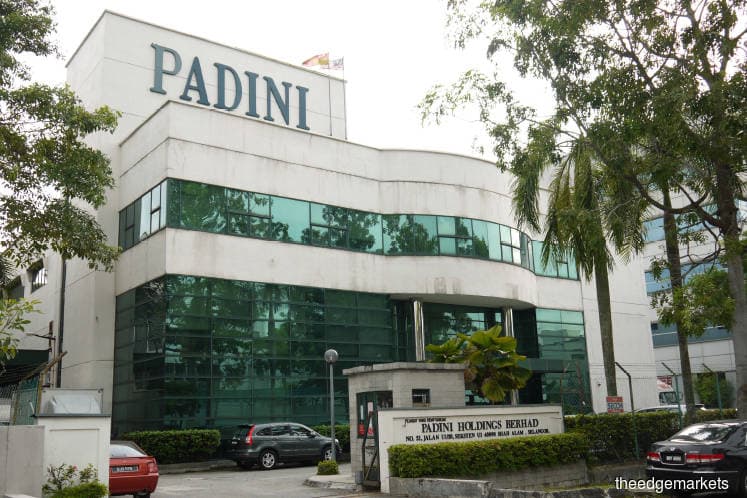
This article first appeared in The Edge Malaysia Weekly on October 7, 2019 - October 13, 2019
THE ever-evolving world of fashion, coupled with a growing consumer preference for online shopping, has made it tough for retailers, with California-based Forever 21 being the latest to file for bankruptcy.
In these challenging times, homegrown fashion company Padini Holdings Bhd believes the best business model to adopt is value-for-money fashion, with a focus on technological fabrics and functional textiles.
“Instead of increasing prices ... we want to increase the volume and quality of our products to keep our customers happy,” Padini executive director Benjamin Yong Tze Jet tells The Edge in a recent interview. “We believe this is the best way forward, as customers today are price-sensitive and well-informed of product offerings in the market. Value-for-money fashion is what we want to offer.”
Padini’s net profit margins have been slipping, falling to 9% for its financial year ended June 30, 2019 (FY2019) from 10.6% in FY2018 and 10% in FY2017. For FY2019, Padini reported a 10.1% year-on-year drop in net profit to RM160.18 million due to lower gross margins, while revenue increased by 6.2% to RM1.78 billion.
Benjamin says the group will strive to increase top-line growth by enhancing its offerings, with new product lines coming onstream as early as next month. “We will not be introducing new brands but we will further expand on our product lines. For example, we are looking at technological fabrics and textiles with function, such as inner wear for warmth and non-iron shirts. We are also collaborating with Walt Disney Co for a product line that will cater for children and adults.”
The group has 141 stores in Malaysia, comprising 48 Padini Concept, 28 freestanding, 55 Brands Outlet and 10 consignment counters. In the near term, there are no plans to close any stores as the group prefers to do renovations where necessary.
“We would need to look at the lease of the store and its performance. If the store is non-performing, we would look at closing it or renegotiating the terms and conditions of the lease. As for opening stores, it would depend on whether the terms and conditions [lease offered by the malls] are favourable to us, but we do not have a set number of stores we want to open,” Benjamin says.
Come FY2020, the group will need to adopt Malaysian Financial Reporting Standards on Leases (MFRS 16), which will require all leases, including operating leases, to be recognised on the balance sheet. Padini chief financial officer and executive director Sharon Sung says the group has assessed the impact of the application of MFRS 16 on the company’s profit or loss statement. “The first period that will be affected is the first financial quarter ended Sept 30, 2019 (1QFY2020), which we will announce in November. There will definitely be some impact but we can’t mention the quantum as of now.”
Embracing Industry 4.0
Also present at the interview was Andrew Yong Tze How, who is Padini executive director and Benjamin’s older brother. While Benjamin is responsible for Padini’s design, merchandising, retail and branding activities, Andrew manages and directs the operations of support departments.
Apart from its new product lines, Andrew says a revamp of its internal processes is also on the cards. “There has been a lot of conversation surrounding Industry 4.0, so we are looking at our own structure to ensure that our processes are kept up to date with more digitalisation in place. There are many pillars to Industry 4.0 and we are looking at them one by one and slowly improving our processes. For example, we are looking at robotics in our warehouse operations to speed up operations.”
Padini has a comfortable cash pile for such processes. The group reported a cash balance of RM472 million as at FY2019 versus borrowings of RM23.9 million. However, Benjamin, stresses that the group intends to be conservative with its spending. “Padini, throughout the years, has been a very conservative company and that is how we have managed to keep our cash flow healthy. We will look out for opportunities, whether it is in supply chain improvement or opening up in new malls. But we will not, for example, blindly open 20 stores to achieve a certain revenue growth only to see 15 of those stores fail.”
The brothers have spent more than a decade at Padini, a company built by their parents, managing director Yong Pang Chaun and executive director Chong Chin Lin.
Padini has consistently paid dividends over the past 10 years, with yields averaging at 4.4%. The group has declared a dividend of 11.5 sen per share in the past four of its financial years (FY2016 to FY2019), from 10 sen per share in FY2015. The decline in FY2019 profit notwithstanding, its performance beat analysts’ expectations, prompting a rally in its share price to RM3.76 last Thursday.
Because of the 12% increase since the release of its FY2019 results on Aug 27, some analysts are of the view that the stock has run ahead of its fundamentals. In a Sept 24 note, AllianceDBS Research downgraded its recommendation on the stock from “hold” to “fully valued” with a target price of RM3.05 (19% downside), as it expects the group to register only modest earnings growth of less than 5% from FY2020 to FY2022, and, as such, no longer fits the profile of a growth stock. Maybank IB Research has a more sanguine view. In a Sept 19 note, it reiterated its “buy” call with a target price of RM4.60, an upside of 22%, as the firm believes Padini’s valuations remain inexpensive at 14.5 times its FY2020 price earnings ratio.
Save by subscribing to us for your print and/or digital copy.
P/S: The Edge is also available on Apple's AppStore and Androids' Google Play.